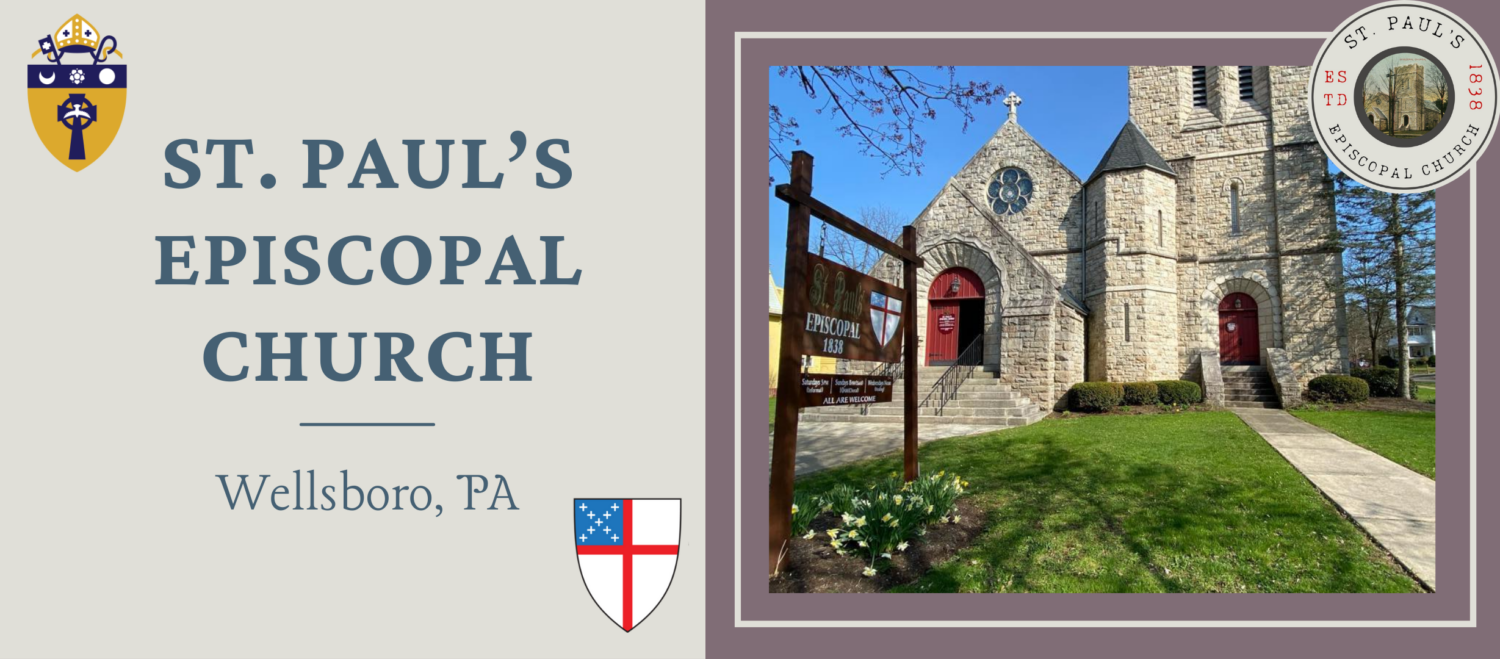
One of the ways we celebrate God’s presence with us is by living the sacramental life of grace.
A Sacrament is an outward sign of God’s love and special help (grace) freely given to us in Jesus Christ.
We celebrate sacraments because, being human, we relate to outward, tactile experiences which have deep and personal meaning. Just as a parent might tenderly hold a young child, offering comfort and reassurance, the sacraments are God’s comfort and reassurance to us who are his children.
By no means are the sacraments the only means by which we encounter the love of God in Jesus Christ, but they are a powerful tool for spiritual growth, and that is why we celebrate the sacraments with regularity.
There are two sacraments of the Gospel, Baptism and the Lord’s Supper (Communion). The other sacraments are all mentioned in the New Testament as the means of bringing the grace of God to bear in the lives of people.
Baptism is initiation into the Church, the Body of Christ. Baptism is offered at Saint Paul’s in consultation with the Rector. Following the pattern of the Acts of the Apostles, young children may be baptized on the strength that they will be raised in the Christian Faith. It is not uncommon for adults to be baptized also. Where possible, it is our preference to celebrate Baptism in the Contact of the Sunday Morning Communion Service, although when it is appropriate for pastoral reasons, in consultation with the priest, private Baptism may be arranged.
Confirmation, Affirmation, and/or Reception are arranged in coordination with the Bishop’s Visitation, because the Bishop presides at the Confirmation, Affirmation and Reception. The Bishop’s Visitation currently occurs every other year in even numbered years. Confirmation is celebration of the renewal of Baptismal Vows and is understood as a public affirmation to follow Jesus Christ as Lord and Savior. For those who come to the Episcopal Church who have been previously confirmed in certain churches, chiefly Orthodox, Roman Catholic, and ELCA Lutheran, and other Episcopal Church ecumenical partners, we recognize their confirmation and they are welcomed by the Bishop into the fellowship of the Episcopal Church.
Penance or Confession is offered in consultation with the priest as personal and pastoral occasions warrant. It is not required of members of the Episcopal Church. It is offered for situations in which one is especially troubled in conscience and when one seeks the assurance of God’s forgiveness.
Communion, also known as the Lord’s Supper, the Eucharist, or the Mass, is our most frequently celebrated sacrament. It is based upon the Passover meal that Jesus ate with his disciples the night before he was betrayed. Because we view the sacrament as a sign of God’s generosity to us, we welcome all people who have been baptized to the supper of the Lord, regardless of their theological understanding, Christian Church denomination, style of life, or whether they are currently actively practicing their baptismal vows. All are invited – without strings attached – to the alter and to the Support of the Lord.
Children who have been baptized are welcome to receive Communion also, and when they have reached a suitable age, in consultation with the priest, they are invited to attend a “readiness for communion” class, that they might understand the importance of this sacrament.
Holy Unction, or the laying on of hands. This sacrament is understood as a sign of God’s healing presence in the lives of the people. Healing can take place, according to God’s will and design in a variety of ways, which sometimes includes physiological healing from illness or disease, the healing of broken memories, mental healing, and spiritual healing. Holy Unction is available Wednesdays in the context of the Healing Mass (service), celebrated in the chapel. It is also available at other times by request. Holy Unction is also appropriately and pastorally administered when a person is gravely ill or immanently near death. It is helpful at those times for the family to be especially in communication with the priest as Hospital Social work departments are not always the most efficient in contacting clergy with requests for pastoral care.
Because of the complex nature of the following sacraments, these two sacraments have certain eligibility requirements and so are not available to everyone:
Holy Matrimony, is the celebration of a covenanted relationship between people, who intent to form a lifelong union in the grace of Jesus Christ. Of all the sacraments, this one alone has some complex eligibility requirements that are governed by Episcopal Church Cannon Law and the lows of the State. Application is done in consultation with priest and is generally reserved for practicing members of the parish.
Holy Orders is a celebration of the call of God for persons to serve in ordained Ministry and as such eligibility is determined by the Canons of the Episcopal Church.

